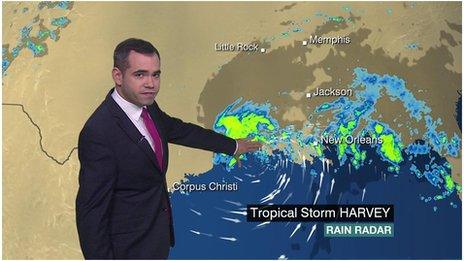Houston floods: 'Worst not yet over,' says Texas governor
- Published
The numbers behind Storm Harvey
Texas Governor Greg Abbott has said "the worst is not yet over" for the south-east of the US state, after devastating Tropical Storm Harvey.
Rain continues to fall, he said, and flooding in certain areas may last another week.
More than 20 people are reported dead and large parts of Houston, Port Arthur and Beaumont are under water.
The storm has weakened into a depression as it moves to Louisiana, where there is also flooding.
Texas has carried out more than 8,500 rescues and more than 32,000 people remain in shelters throughout the state, Governor Abbott said.
Another 10,000 members of the National Guard are said to be on their way, joining the 14,000 already deployed to tackle the disaster.
The National Weather Service said the coastal Cedar Bayou area had recorded a rainfall of nearly 52in (132cm) since Friday, which is a continental US record.
However, meteorologists say much drier weather is forecast for Texas in the days ahead.
Authorities and volunteers are still battling to rescue stranded people.
Family of six
The sheriff's office in Harris County has confirmed a family of six - two great-grandparents and four children - drowned while trying to flee the floods in a van.
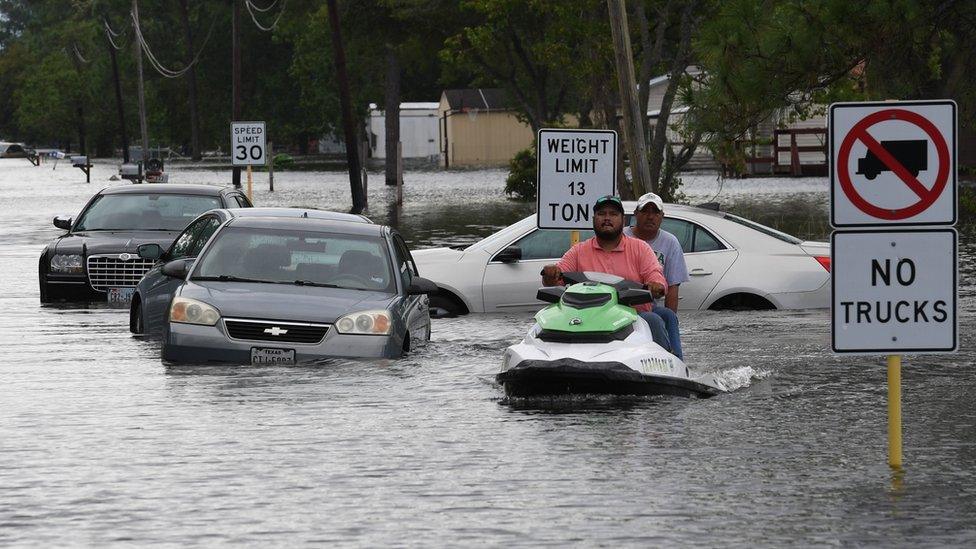
Locals jet ski down a road in Crosby, Texas
Among them was 16-year-old Devy Saldivar, who had posted an anxious Facebook message about the extreme weather on Sunday: "No sleep & anxiety, please let this pass sooner."
"Our worst fears have been realised," said Sheriff Ed Gonzalez, breaking the news.
The driver, the son of the elderly couple, was able to escape and was found clinging to a tree, screaming for help, he said.
Authorities are reminding people not to drive - many of the casualties happened on the roads as people underestimated the power of the water.
On social media, officials are repeating their mantra "Turn around, don't drown" to stop people heading out into difficult situations.
Chemical plant fears
There are also concerns for a chemical factory that has been at risk of explosion in Crosby.
"There is no way to prevent it," the CEO of the Arkema plant told US reporters. He explained that the chemicals were likely to catch fire as the refrigerators that kept them cool had been compromised by the floods. An evacuation order for the immediate radius has been in place since Tuesday.
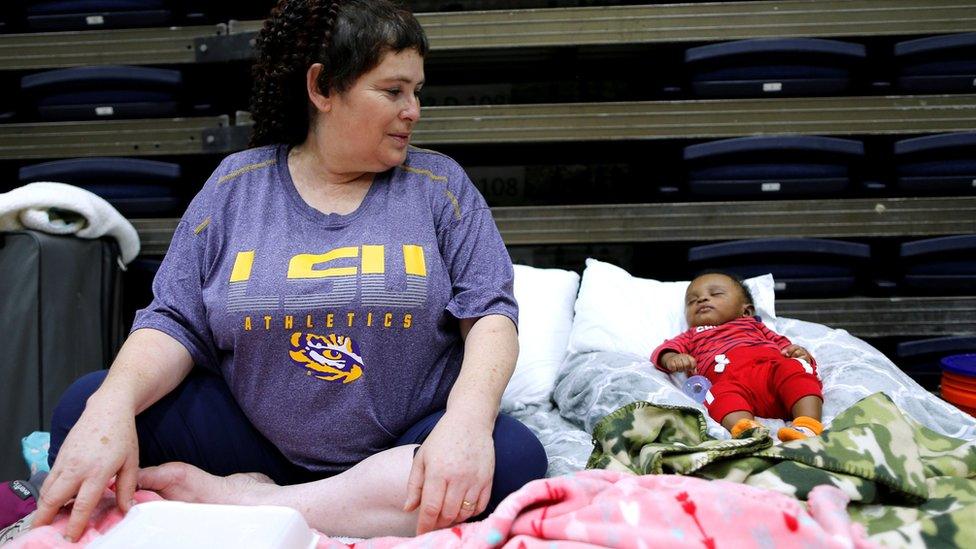
Louisiana evacuee Denise Vital, pictured with her three-month-old godson, says her home was destroyed before, in 2005's Hurricane Rita
Meanwhile, in Louisiana, Harvey landed in the south-west corner of the state, around Cameron, in the early hours of Wednesday. It is predicted to travel in a north-easterly direction, weakening as it goes.
The National Weather Service said heavy rainfall was expected from Louisiana to Kentucky over the next three days.
Flash-flood warnings remain in effect for parts of southern Louisiana and southern Mississippi.
Harvey finally on the move
New Orleans - which was devastated by 2005's Hurricane Katrina - is not in Harvey's direct path, according to forecasters.
Curfew
In Houston, which is the country's fourth most populous city, a temporary curfew has been implemented to prevent looting, while homes remain abandoned.
The curfew, which began on Tuesday night, runs from 00:00-05:00 local time (05:00-10:00 GMT). Relief volunteers, first responders and those going to and from work are exempt.
Police have said no action was taken against anyone for violating it on its first night.
President Donald Trump visited Texas on Tuesday to survey the damage brought by Harvey.
He arrived in Corpus Christi, where Hurricane Harvey first made landfall on Friday, with First Lady Melania Trump.
Mr Trump said he wanted the relief effort to stand as an example of how to respond to a storm.
He did not visit Houston. The White House said he did not want his visit to disrupt the emergency response.
Mr Trump has declared a federal state of emergency in both Texas and Louisiana. The move releases emergency government funding and other assistance.
Harvey was the most powerful hurricane to hit Texas in more than 50 years when it first made landfall at Corpus Christi, 220 miles (354km) south-west of Houston, late on Friday.


Are you affected by Tropical Storm Harvey? Let us know about your experiences. Email haveyoursay@bbc.co.uk, external with your stories.
Please include a contact number if you are willing to speak to a BBC journalist. You can also contact us in the following ways:
WhatsApp: +44 7525 900971
Send pictures/video to yourpics@bbc.co.uk, external
Upload your pictures / video here, external
Tweet: @BBC_HaveYourSay, external
Send an SMS or MMS to 61124 or +44 7624 800 100
- Published30 August 2017
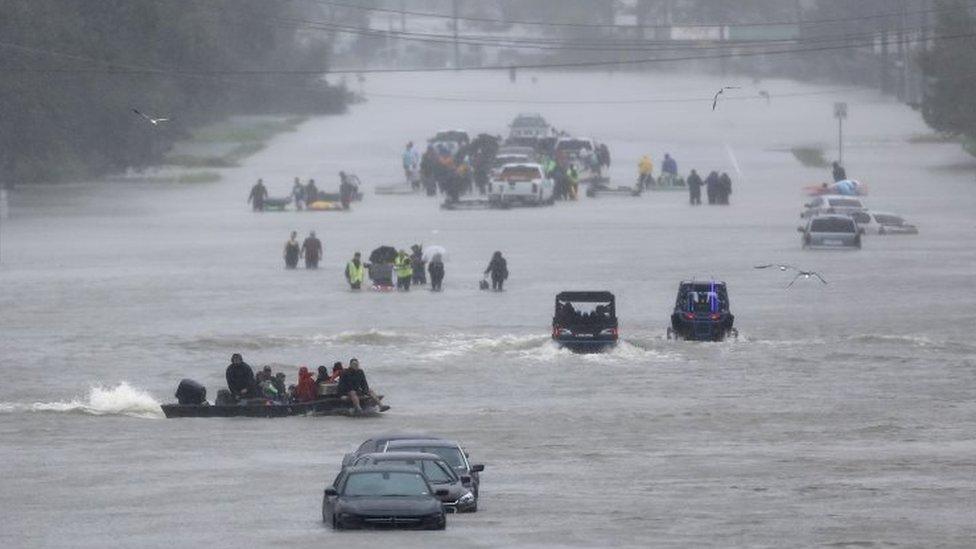
- Published31 August 2017
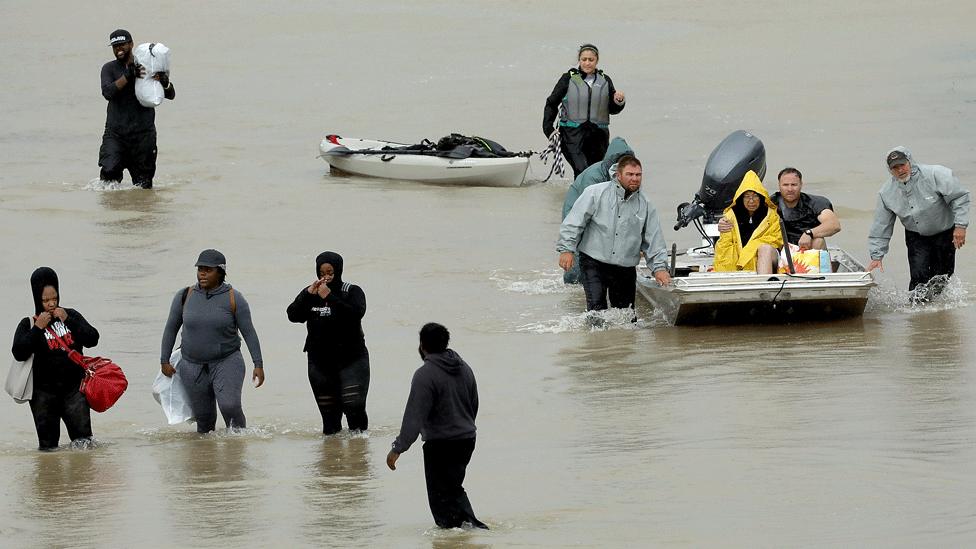
- Published30 August 2017
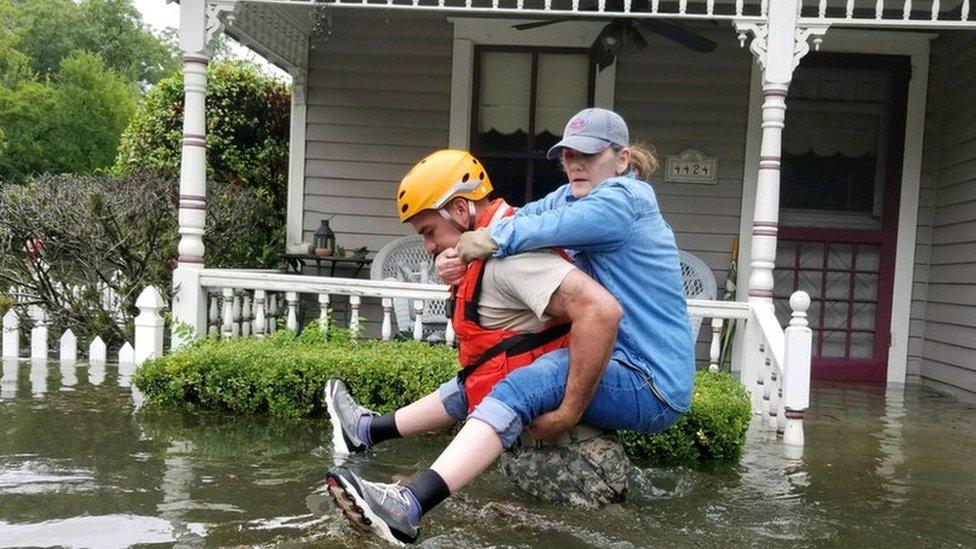
- Published30 August 2017
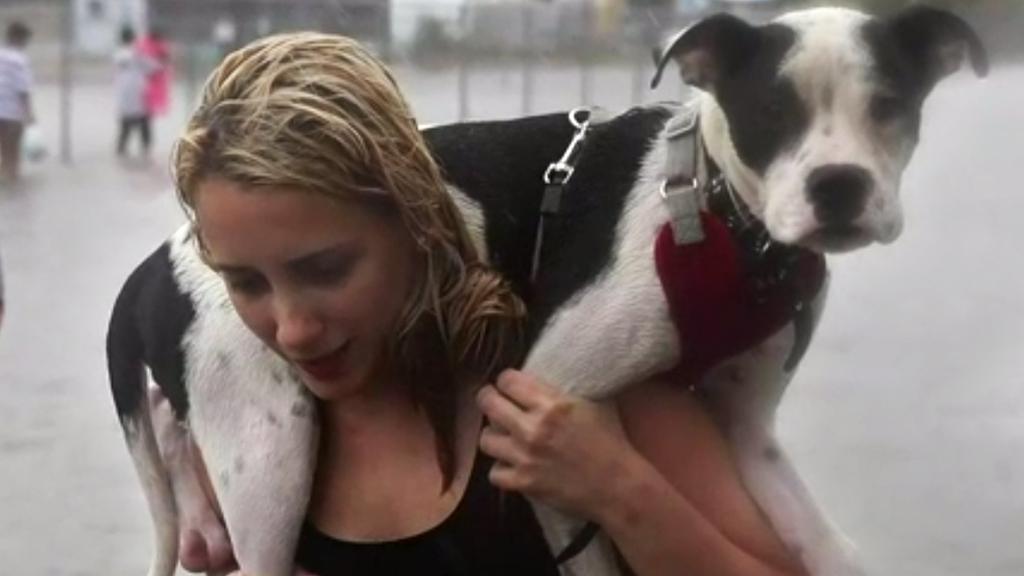
- Published28 August 2017
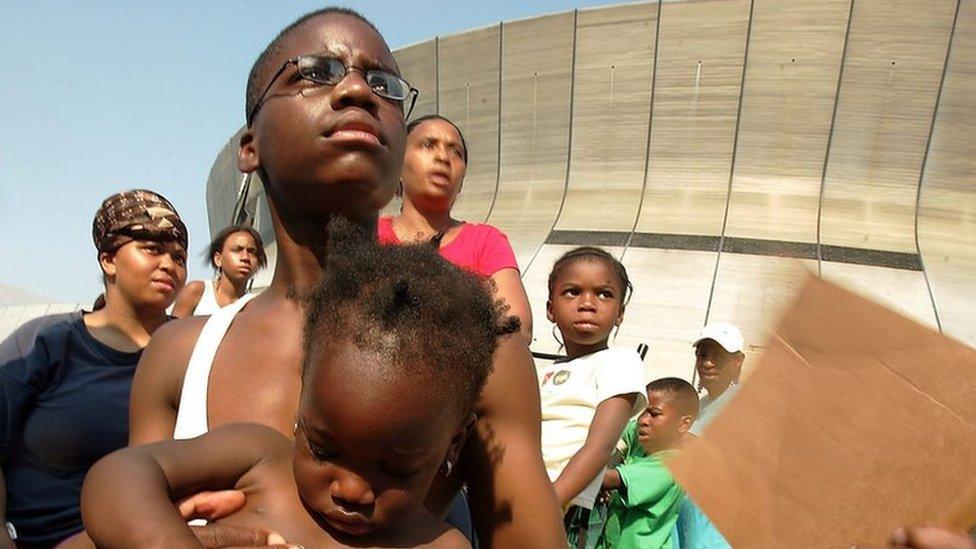
- Published29 August 2017
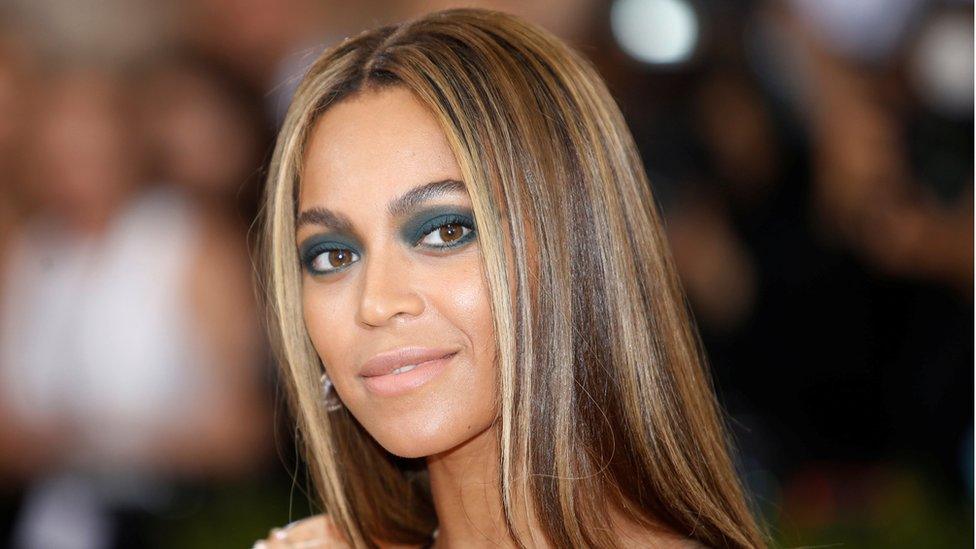
- Attribution
- Published30 August 2017
